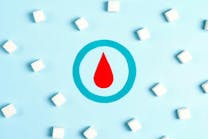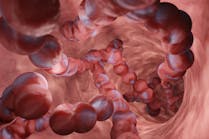Observatory
News/ Trends/ Analysis
New York backs off forced H1N1 vaccines for
healthcare workers. New York Governor David A. Paterson announced on
Oct. 22, 2009, that the mandatory influenza-immunization requirement for
New York healthcare workers has been suspended. Vaccines for all
healthcare workers were mandated under an emergency regulation issued in
August by the state health commissioner. This was followed by a series
of protests and lawsuits by healthcare workers who vowed to fight the
order that required them to get seasonal and H1N1 flu shots or face the
possibility of being fired. The governor announced the decision to drop
the vaccination order, citing an acknowledgement by the U.S. Centers for
Disease Control and Prevention (CDC) that only 23% of the anticipated
vaccines would reach the state by the end of October. Paterson says the
limited H1N1 vaccine supplies should be used for populations highest
risk for complications from the H1N1 flu — especially pregnant women and
children and young people between the ages of 6 months and 24 years.
Blood services merge. Florida Blood
Services (FBS) and Blood Systems Laboratories (BSL) will consolidate
their donor testing laboratories under the name Creative Testing
Solutions (CTS), effective Jan. 1, 2010, creating the second largest
blood-donor testing laboratory in the United States. BSL currently
operates high-volume testing laboratories in Phoenix and Dallas. FBS
testing facilities are located in St. Petersburg, FL. CTS will occupy
30,000 square feet of space on the FBS campus. Together, the two
organizations test approximately 25% of the U.S. blood supply. Only the
American Red Cross tests more donations. Currently, FBS has both
donor-testing laboratories and viral-confirmatory special-testing labs,
and recent expansion has made FBS the only donor nucleic-acid testing
facility in the world to employ dual testing platforms available for
these cutting-edge donor tests, according to a statement from FBS. In
addition to testing, Florida Blood Services provides blood donations to
hospitals and ambulatory healthcare facilities in Florida, Georgia, and
Alabama. In 2010, it is anticipated that CTS will begin viral testing on
an additional 350,000 blood donations.
Benjamin becomes Surgeon General.
The United States Senate unanimously confirmed Regina Benjamin, MD, MBA,
as the nation's next Surgeon General on Oct. 29, 2009. Benjamin, a
family physician, founder, and CEO of the Bayou La Batre Rural Health
Clinic in Bayou La Batre, AL, was nominated to the post in July by
President Obama. Benjamin is the immediate past-chair of the Federation
of State Medical Boards of the United States; previously served as
associate dean for Rural Health at the University of South Alabama
College of Medicine; and was as a member of COLA's board of directors in
the mid-1990s. Benjamin attended Xavier University in New Orleans,
received her MD degree from the University of Alabama-Birmingham, and
completed her residency in family practice at the Medical Center of
Central Georgia. With medical school paid for by the National Health
Service Corps, Benjamin began a solo practice in Bayou La Batre. After
receiving an MBA from Tulane University, she converted her office to a
rural health clinic.
H1N1 flu confirmed in cat. A 13-year-old
cat in Iowa was infected with H1N1 flu, according to the Iowa Department
of Public Health. The veterinarian who treated the cat says two of the
people in the cat's home had flu-like symptoms before the cat became
ill. The indoor cat was lethargic, had a loss of appetite, and appeared
to have trouble breathing. The case was confirmed at both Iowa State and
the U.S. Department of Agriculture (USDA). People who are sick with H1N1
can spread the virus not only to humans but also to some animals. Prior
to this diagnosis, the 2009 H1N1 influenza virus had been found in
humans, pigs, birds, and ferrets.
New strain of MRSA carries high mortality
rate.
The USA600 strain of methicillin-resistant Staphylococcus aureus
(MRSA) bacteremia is potentially lethal and is associated with
vancomycin resistance, according to a study from the Henry Ford Health
System in Detroit. USA600 occurs mainly in older, sicker patients with
more comorbidities. In the study, 38% of those with the strain were from
nursing homes. Researchers looked at MRSA bloodstream infections at
Henry Ford Hospital from 2005 to 2008. Of 420 blood stream infections,
16 were USA600-positive. Of the 16 patients with USA600, 80% failed
(death within 30 days, positive blood cultures after 10 days, or new
MRSA bloodstream infection within 30 days of treatment); and 20% got
better. Mortality in patients with the USA600 strain was 50% (eight
deaths), compared with 11% in those with non-USA600 MRSA. All deaths
occurred within the first 15 days of infection.
E coli blamed for two deaths.
Several state health departments, the CDC, and the USDA's Food Safety
and Inspection Service (FSIS) are investigating a multistate outbreak of
Escherichia coli O157:H7 infections. On Oct. 31, 2009, FSIS issued
a notice about a recall of more than 500,000 pounds of beef products
from Fairbank Farms that may be contaminated with E coli O157:H7.
As of Nov. 3, 16 patients were hospitalized — three developed kidney
failure, hemolytic uremic syndrome — and two deaths have been reported,
according to the CDC. The suspect meat was sold in Connecticut,
Maryland, Massachusetts, New Jersey, New York, Pennsylvania, North
Carolina, and Virginia. More information is available atwww.cdc.gov/ecoli/2009/index.html
.
Chronic fatigue syndrome linked to new virus.
A newly identified virus has been found to be linked to chronic fatigue
syndrome, according to a report in November's issue of Science.
Researchers at the Whittemore Peterson Institute in Nevada found that
67% of 101 patients who had chronic fatigue syndrome also had the XMRV
virus. In contrast, the virus was present in about 4% of 218 controls
who did not have the syndrome. XMRV, short for xenotropic murine
leukemia- virus-related virus, affects the immune system. It exists in
blood and body fluids, and is readily transmitted. Chronic fatigue
syndrome, which affects an estimated 17 million people worldwide, is a
multisystem disorder with an unknown cause, and there are diagnostic
tests to confirm the syndrome. Researchers say the level of XMRV
infection revealed in the study is not just a concern among people who
have chronic fatigue syndrome but may be a public-health issue as well.
APIC launches HAI-prevention course. A
course to educate healthcare professionals on preventing the
transmission of healthcare-associated infections (HAIs) is being
launched by the Association for Professionals in Infection Control and
Epidemiology (APIC). The “APIC Healthcare-Associated Infections
Elimination Library” compiles APIC's evidence-based elimination guides
into an interactive, online format. Elimination of MRSA in hospital
settings is the first module. Future courses will cover catheter-related
bloodstream infections, catheter-associated urinary-tract infections,
C difficile, surgical-site infections, and ventilator-associated
pneumonia.
CD4 level predicts cancer risk in HIV
patients.
A falling CD4 count predicts increased susceptibility to seven types of
cancer in people infected with HIV, according to a study of more than
50,000 patients. The cancers include both AIDS-defining and
non-AIDS-defining malignancies, investigators reported online in The
Lancet Oncology. They speculated that early diagnosis and treatment
of HIV could delay the onset of some cancers. The authors also
recommended cancer-specific screening for HIV-infected individuals, as
improved treatment for HIV and AIDS has led to longer patient survival —
but that increased life expectancy may have brought an increased
susceptibility to cancer.
Nasal vaccine against Helicobacter pylori
under development.
Eurocine Vaccines has signed an agreement with research company HeliCure
to develop a nasal vaccine against H pylori, a bacterium that
causes gastric ulcers and gastric cancer. The project is in the
pre-clinical development phase and is planned for tests in humans within
two to three years. In addition to gastric ulcers, every year
approximately 1 million people develop gastric cancer. The strong
connection with H pylori means that a vaccine, which prevents
infection with the bacterium, will also reduce the risk of gastric
cancer.
In memoriam
Conferences
Jan. 23-37, 2010. The
Association for Laboratory Automation's LabAutomation2010, at the Palm
Springs, CA, Convention Center, will focus on the growing field of
laboratory automation. Some 5,000 laboratory automation scientists and
business leaders from around the globe will come together to network and
benefit from leading education, information, strategies, and
technologies. For more information, go to
www.labautomation.org .
Jan. 29-30, 2010. The 17th
Annual First Coast Infectious Disease/Clinical Microbiology Symposium
will be held at the Renaissance Resort at World Golf Village, St.
Augustine, FL. For more information, go to
www.firstcoastidcm.com .
Feb. 3-5. “Molecular Diagnostics 2010 New Wave of Personalized Medicine” is part of Cambridge Healthtech Institute's Molecular Medicine Tri-Conference at Moscone North Convention Center, San Francisco. The agenda includes practical challenges in getting diagnostics reimbursed; value-based lab tests; gene patents in molecular diagnostics; MRSA surveillance programs; and more. Register online at
https://chidb.com.
Feb. 25-27. “ASCLS Clinical Laboratory Educators' Conference” at Beau Rivage Hotel, Biloxi, MS, offers educators sessions on the latest areas of science and management, and the skills needed by future graduates, as well as recruitment strategies and how to better prepare MLS students for clinical practice. Learn more at
www.ascls.org/conferences/CLEC2010.
March 22-25. The Society of Armed Forces Medical Laboratory Scientists Meeting at the Town & Country Resort in San Diego will include breakout sessions, special meetings, workshops, poster sessions, and a wide variety of presentations. The 2010 theme is “Have Lab—Will Travel.” For more information, visit
www.safmls.org .
March 24-26, 2010. The biennial
CDC-APHL HIV Diagnostics Conference at the Doubletree Hotel Universal
Studios in Orlando will gather experts in the field of HIV testing to
review findings and data regarding alternative HIV testing algorithms;
new serologic, molecular and point-of-care HIV testing techniques; and
practices for bridging laboratory and point-of-care testing strategies
including model quality-assurance practices in CLIA-waived testing
programs. Learn more at
www.hivtestingconference.org.
April 14-16. “Molecular Diagnostics 2010 — Putting MDx to the Test: How Your Lab Can Capitalize on Molecular Diagnostics” at the Hyatt Regency Cambridge (MA) will provide expert insight and advice on how labs can integrate MDx into their business strategies, given the current regulatory and business environment. Preconference workshops include starting up and running a molecular lab and coding, billing, and payment for molecular assays. Register before March 5 to save $100. Learn more at
www.g2reports.com .
April 25-28. The 26th Annual Clinical Virology Symposium and the Annual Meeting of the Pan American Society for Clinical Virology will be held in Daytona Beach, FL, and provide a forum for the meaningful exchange of ideas dealing with viral infections, and the relationship between rapid viral diagnosis, clinical course of viral infections, and preventive and therapeutic modalities for virus infections. Learn more at
http://hsc.usf.edu/nocms/medicine/medmicro/virology/index.htm .
April 27-28. The 15th Annual Executive War College at the Sheraton New Orleans is designed to help lab administrators and pathologists learn practical methods for improving the organizational performance and financial success of their labs, including up-to-date information on market trends, lab-management methods, and effective financial strategies for enhancing revenues and profits. Register online at
www.executivewarcollege.com .
May 4-6. CLMA ThinkLab'10 will take place at the MGM Grand, Las Vegas. ThinkLab '10 will feature a variety of educational sessions specifically designed for emerging lab leaders as well as seasoned C-Level executives with more than 40 breakout sessions covering a wide range of topics including molecular diagnostics. Learn more at
www.clma.org/thinklab .
AUDIOCONFERENCES
Dec. 16, 2:00 p.m.-3:30 p.m. ET.
“The Lab's Critical Role in Managing Hospital-Acquired Infections.”
Learn what hospital labs are doing to meet Joint Commission requirements
related to preventing HAIs, and how new molecular-testing technologies
are helping healthcare organizations find these infections more quickly.
Register at www.aacc.org
.
Dec. 16, 2:00 p.m.-3:30 p.m. ET.
“CLIA Blood Banking Personnel Requirements” will include discussions on
testing regulated by CLIA, and the personnel requirements to perform
these tests in the blood center or transfusion service. Current hot
topics and regulations will also be addressed. Visit
www.aabb.org.









